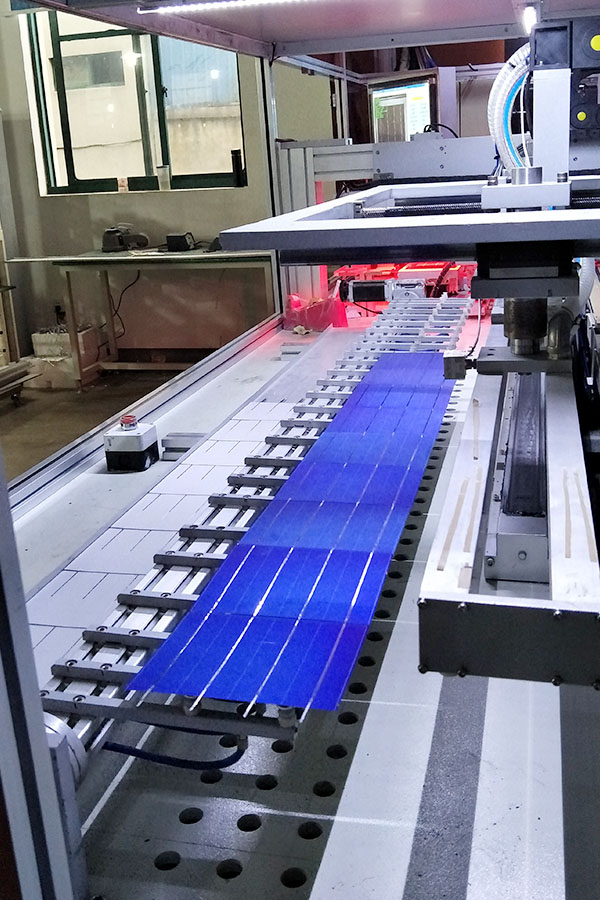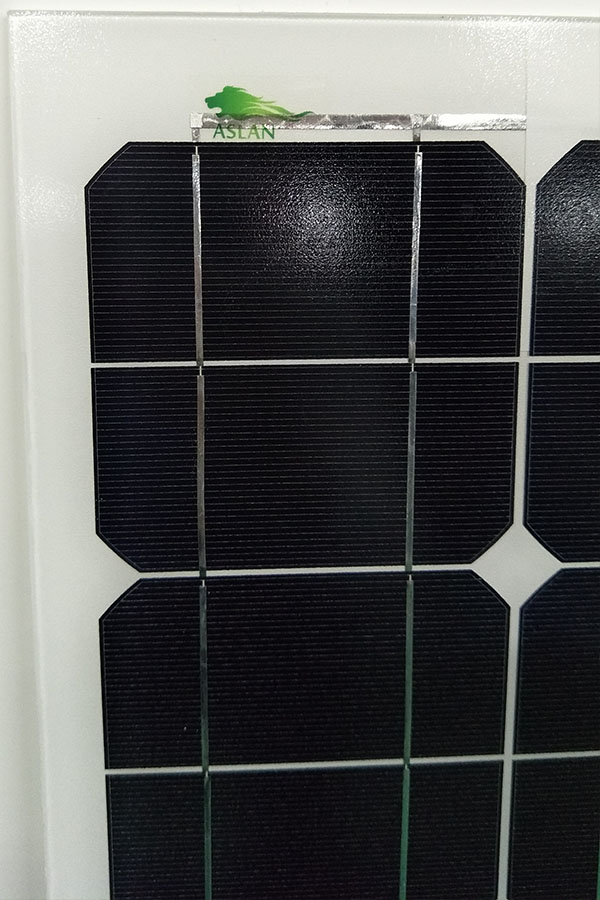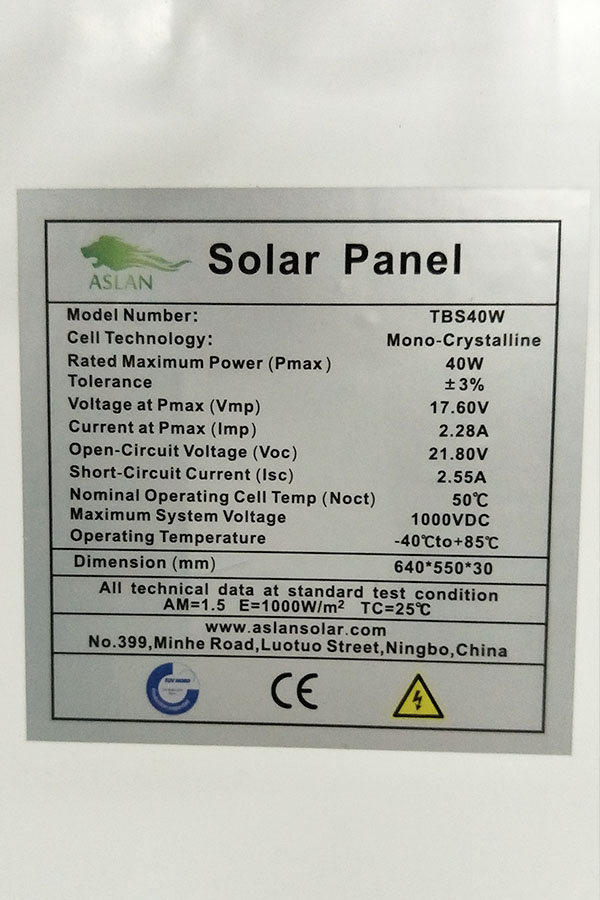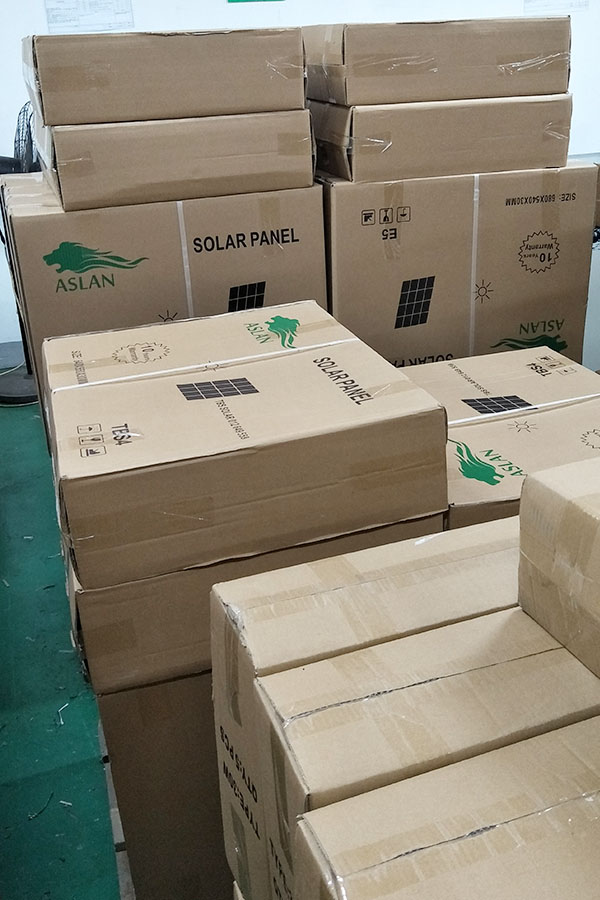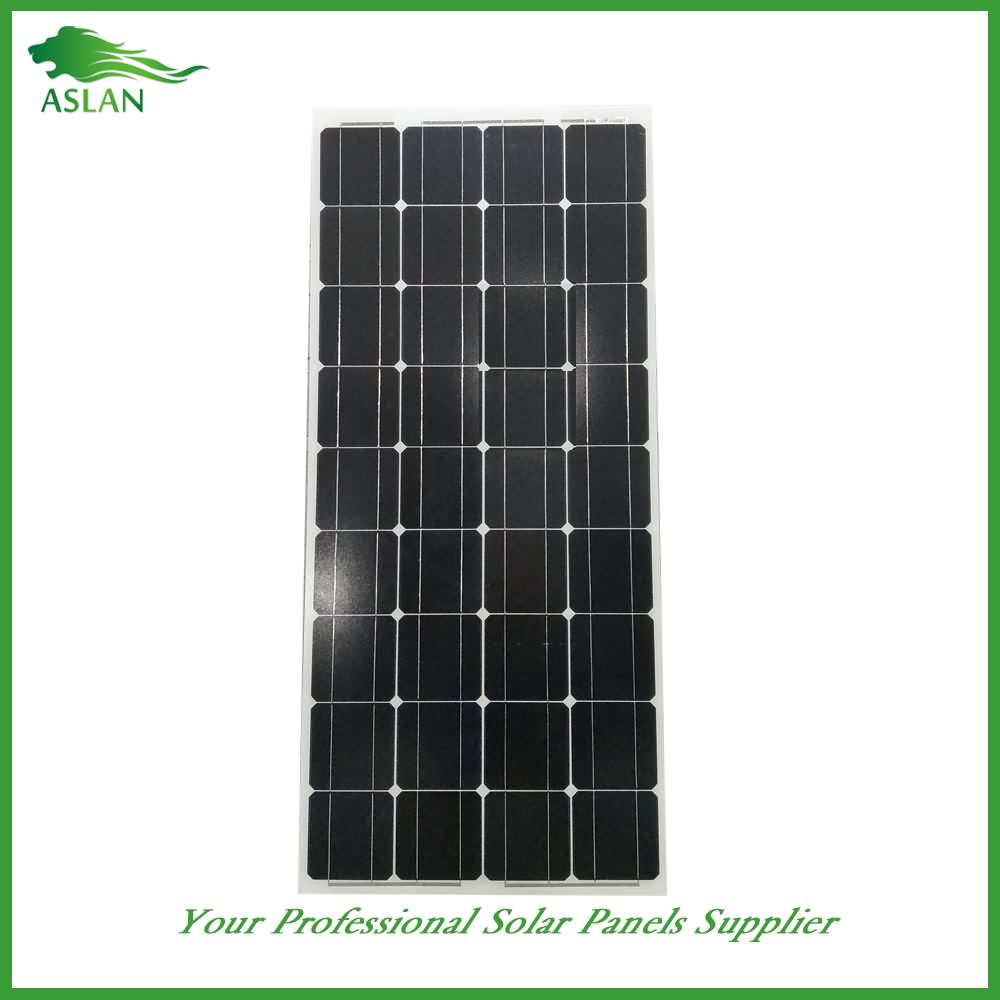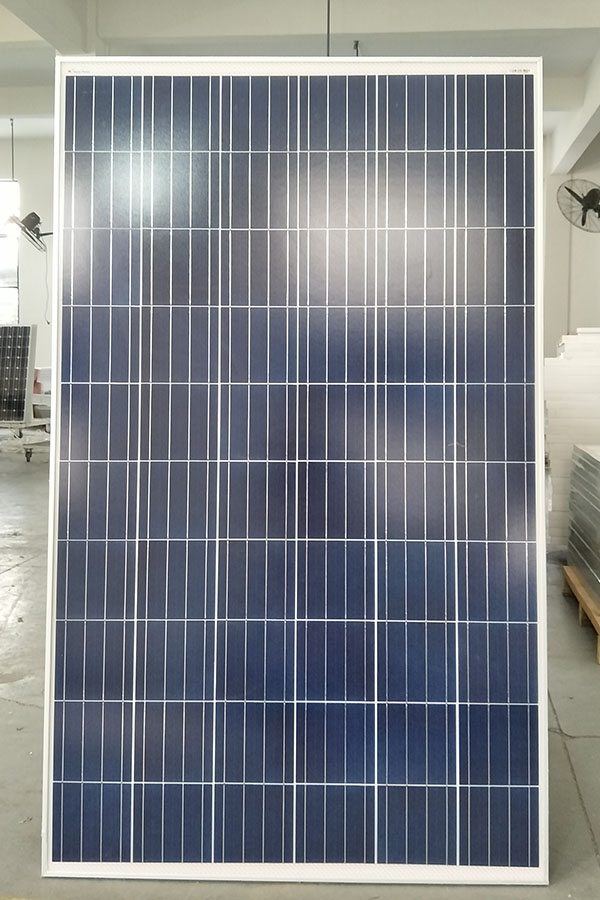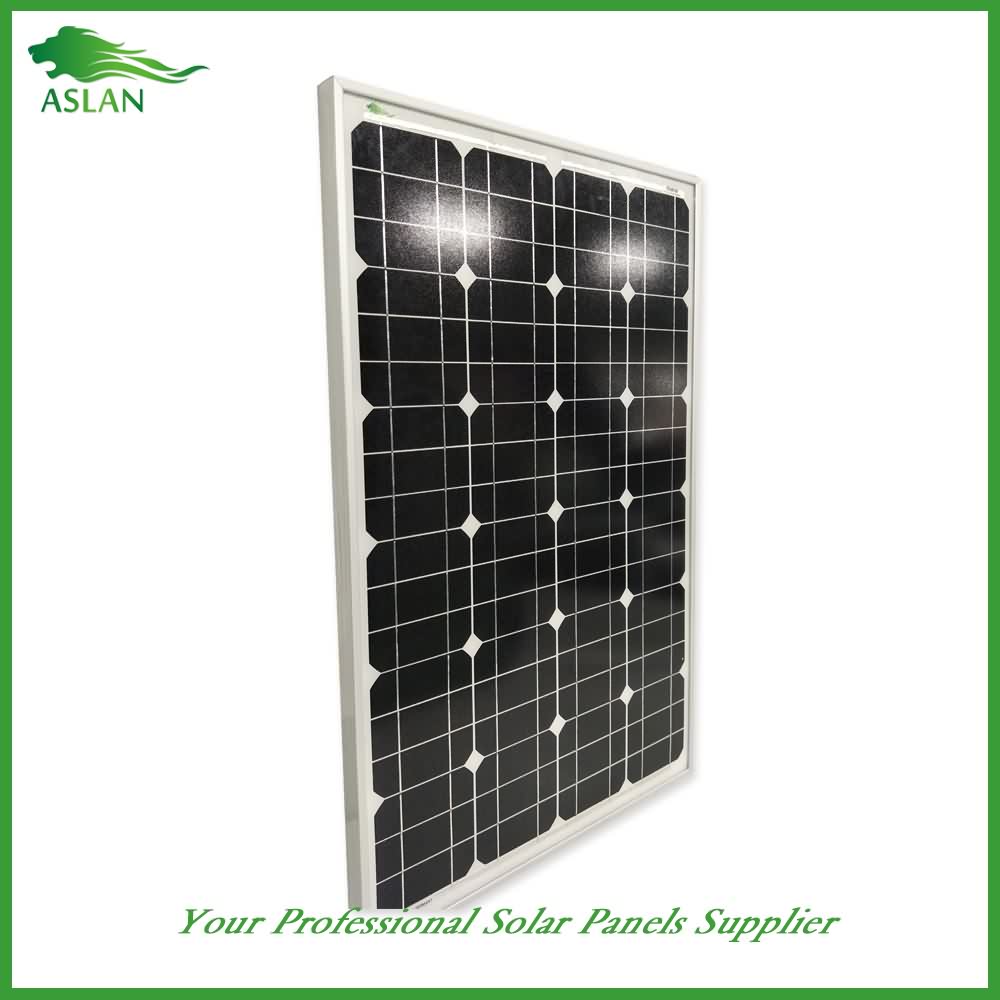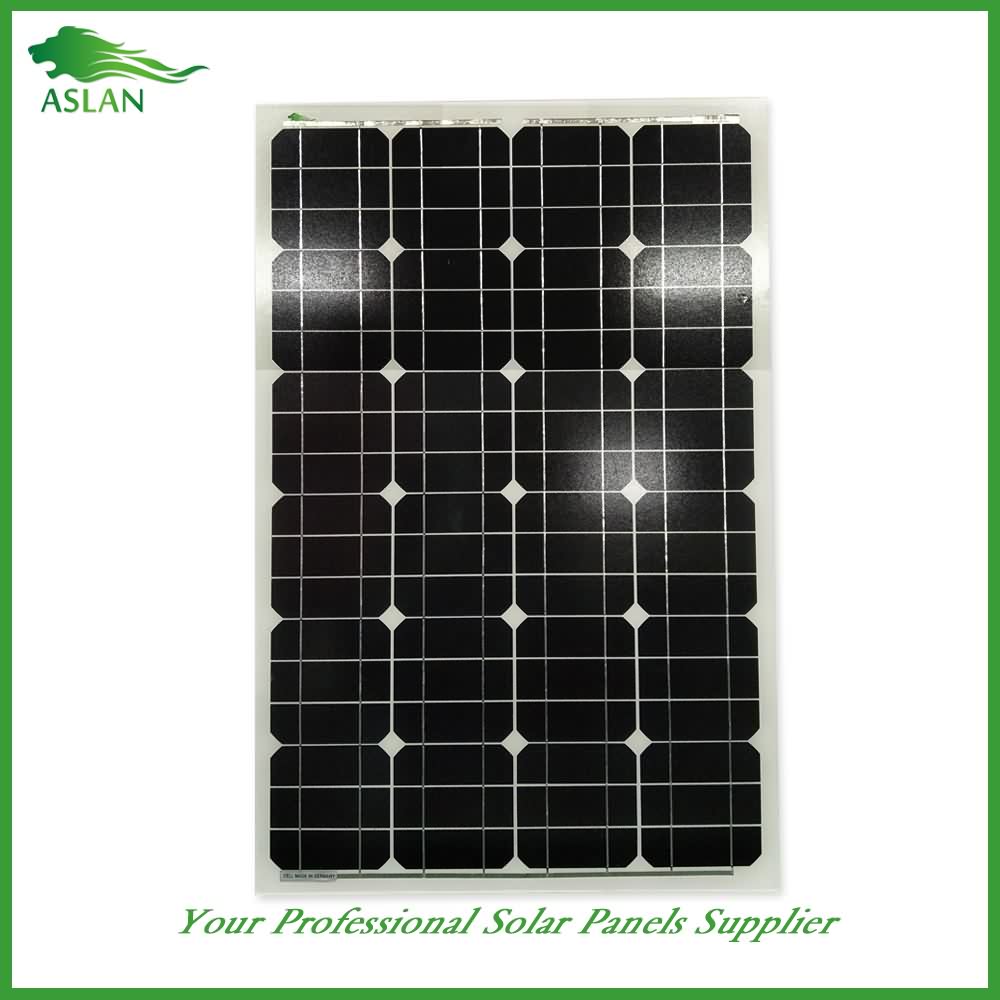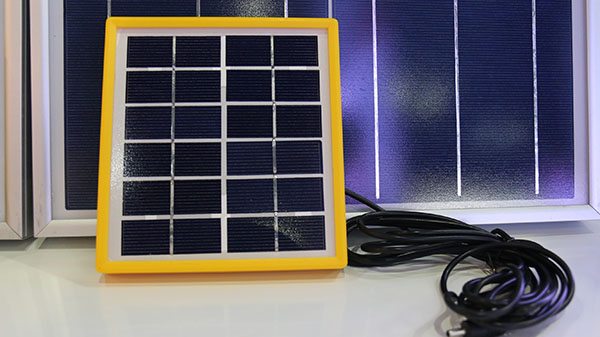Quality Inspection for Poly-crystalline Solar Panel 3W Turkmenistan Factories
Short Description:
We believe in: Innovation is our soul and spirit. Quality is our life. Customer need is our God for Quality Inspection for Poly-crystalline Solar Panel 3W Turkmenistan Factories, We have confident that we can provide the high quality products at resonable price, good after-sales service to the customers. And we will create a bright future.
Poly-crystalline Solar Panel 3W
Technical parameter
Maximum Power(W) 3W
Optimum Power Voltage(Vmp) 9V
Optimum Operating Current(Imp) 0.34A
Open Circuit Voltage(Voc) 10.8V
Short Circuit Current(Isc) 0.37A
Mechanical Characteristics
Cell Type Polycrystalline
No of Cell 18 (2x9pcs)
Dimensions 145x245x18mm
Weight 0.52KGS
Front Glass 3.2mm,High Transmission, Low Iron,Tempered Glass
Temperature and Coefficients
Operating Temperature(°C): -40°C ~ + 85°C
Maximum System Voltage: 600V(UL)/1000V(IEC) DC
Maximum Rated Current Series: 10A
Temperature Coefficients of Pmax: -0.435%
Temperature Coefficients of Voc: -0.35%
Temperature Coefficients of Isc: 0.043%
Nominal Operationg Cell Temperature (NOCT): 47+/-2°C
Materials of solar panel
1).Solar Cell——Polycrystalline solar cell 156*156mm
2).Front Glass——-3.2mm, high transmission, low iron, tempered glass
3).EVA——-excellent anti-aging EVA
4).TPT——-TPT hot seal made of flame resistance
5).Frame——anodized aluminum profile
6).Junction Box——-IP65 rated, high quality, with diode protection
Superiority: high quality anodized aluminum frame, high efficiency long life, easy installation, strong wind resistance, strong hail resistance.
Features
1. High cell efficiency with quality silicon materials for long term output stability
2. Strictly quality control ensure the stability and reliability, totally 23 QC procedures
3. High transmittance low iron tempered glass with enhanced stiffness and impact resistance
4. Both Poly-crystalline and Mono-crystalline
5. Excellent performance in harsh weather
6. Outstanding electrical performance under high temperature and low irradiance
Quality assurance testing
Thermal cycling test
Thermal shock test
Thermal/Freezing and high humidity cycling test
Electrical isolation test
Hail impact test
Mechanical, wind and twist loading test
Salt mist test
Light and water-exposure test
Moist carbon dioxide/sulphur dioxide
UNSW School of Photovoltaic and Renewable Energy Engineering
Advanced optoelectronic tools to interrogate solution-processed solar cells
Andrew Telford
Imperial College London
To view complete with slides:
http://www2.pv.unsw.edu.au/videos/Andrew-Telford-24February2017/
To view additional seminars:
https://www.engineering.unsw.edu.au/energy-engineering/public-research-seminars
Homepage: http://www.pv.unsw.edu.au
ABSTRACT:
Organic and hybrid organic-inorganic thin films are attracting increasing attention due to their great potential for applications in a range of optoelectronic devices, such as solar cells and light-emitting diodes (LEDs). The ability to prepare films from solution, and at relatively low temperatures, allows the fabrication of devices that can be flexible, semi-transparent and light-weight. These properties can enable the integration of solar cells and LEDs in buildings, cars, clothing and more, as well as the development of foldable electronics.
In this talk, I will discuss the use of advanced optoelectronic techniques in understanding some major challenges in the development of two main types of solution-processed systems: polymer:fullerene bulk heterojunction solar cells and hybrid organic lead-halide perovskite solar cells. Firstly, I will introduce a new technique based on transient photovoltage spectroscopy, and show how we used it to shed light on the mechanism of current-voltage hysteresis in methylammonium lead iodide perovskite solar cells. Specifically, why hysteresis is so dependent on device structure. Secondly, I will discuss the combination of electroluminescence, transient photovoltage spectroscopy, sub-band-gap external quantum efficiency and space-charge-limited-current measurements to identify the formation of electron trap states in PCDTBT:PCBM solar cells. This study points at the fullerene as the weak link in the photo-degradation of polymer:fullerene devices, offering a guideline for the development of more stable solar cells.
SHORT BIOGRAPHY:
Dr Andrew Telford is a materials chemist with solid experience in the design and fabrication of polymeric and inorganic micro- and nano-architectures. He is currently a Junior Research Fellow at the Department of Physics, Imperial College London. Andrew completed his B.Sc. (Chemistry) at the University of Siena (Italy) in 2004, and his M.Sc. (Environmental and Cultural Heritage Chemistry) at the University of Florence (Italy) in 2007. He obtained his PhD in Science (Chemistry) from the University of Sydney (Australia) in 2012. His PhD research focussed on the modification of solid thin films to produce coatings with tailored properties. Specifically, bio-compatible coatings for the integration of biological and non-biological materials (e.g. for medical implants) and water-repellent paints.
The skills he acquired on the fabrication and characterisation of complex thin films were instrumental in approaching the field of renewable energy technologies. His current work at Imperial College London focuses on the development of new thin-film solar cells and light-emitting devices, primarily processed from solution. His work also involves the development of advanced optoelectronic probes to study solution-processed devices.
si le interesa estos son los contactos
cel: +56973762674
dirección: zegers 1895, Iquique
gerente general: Eduardo Santelices

